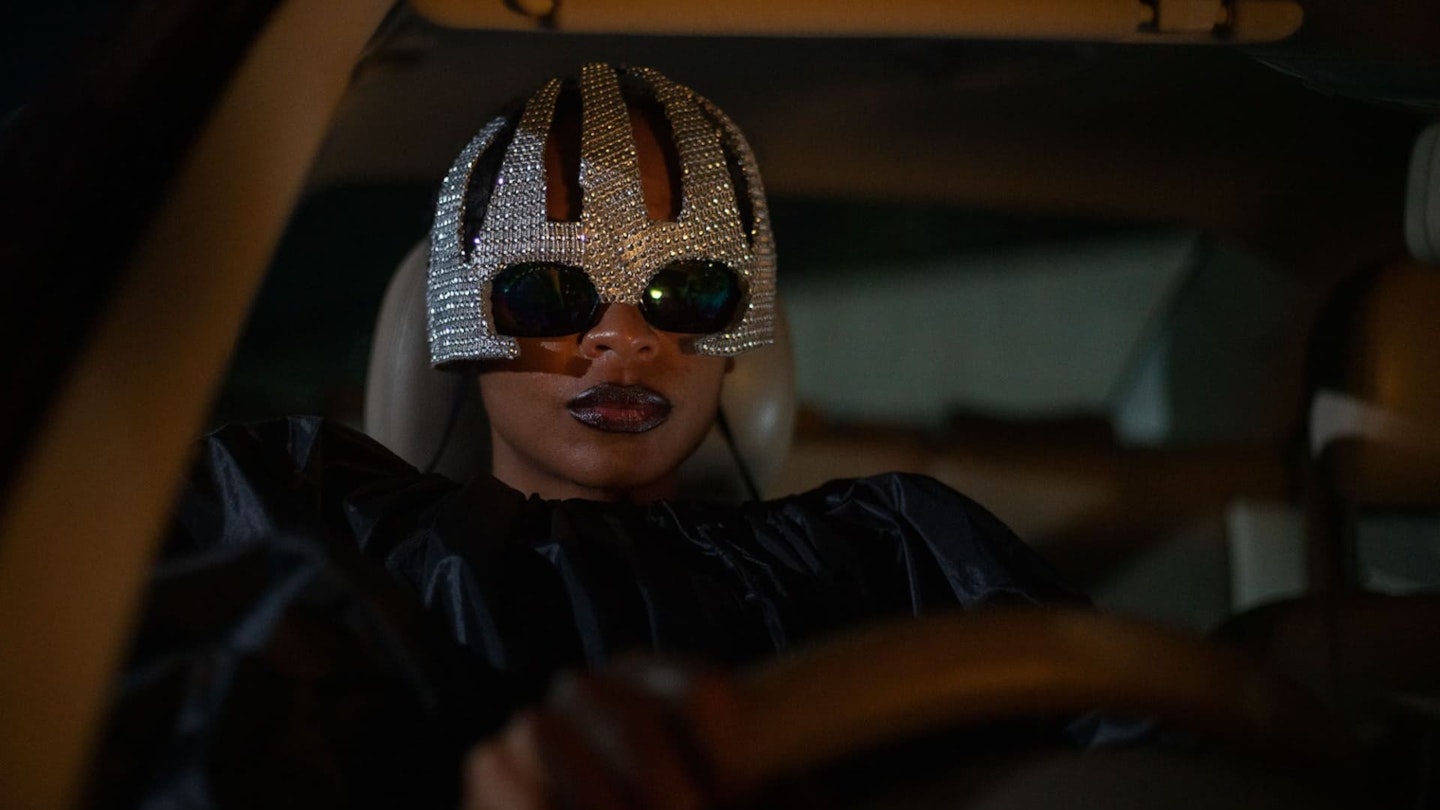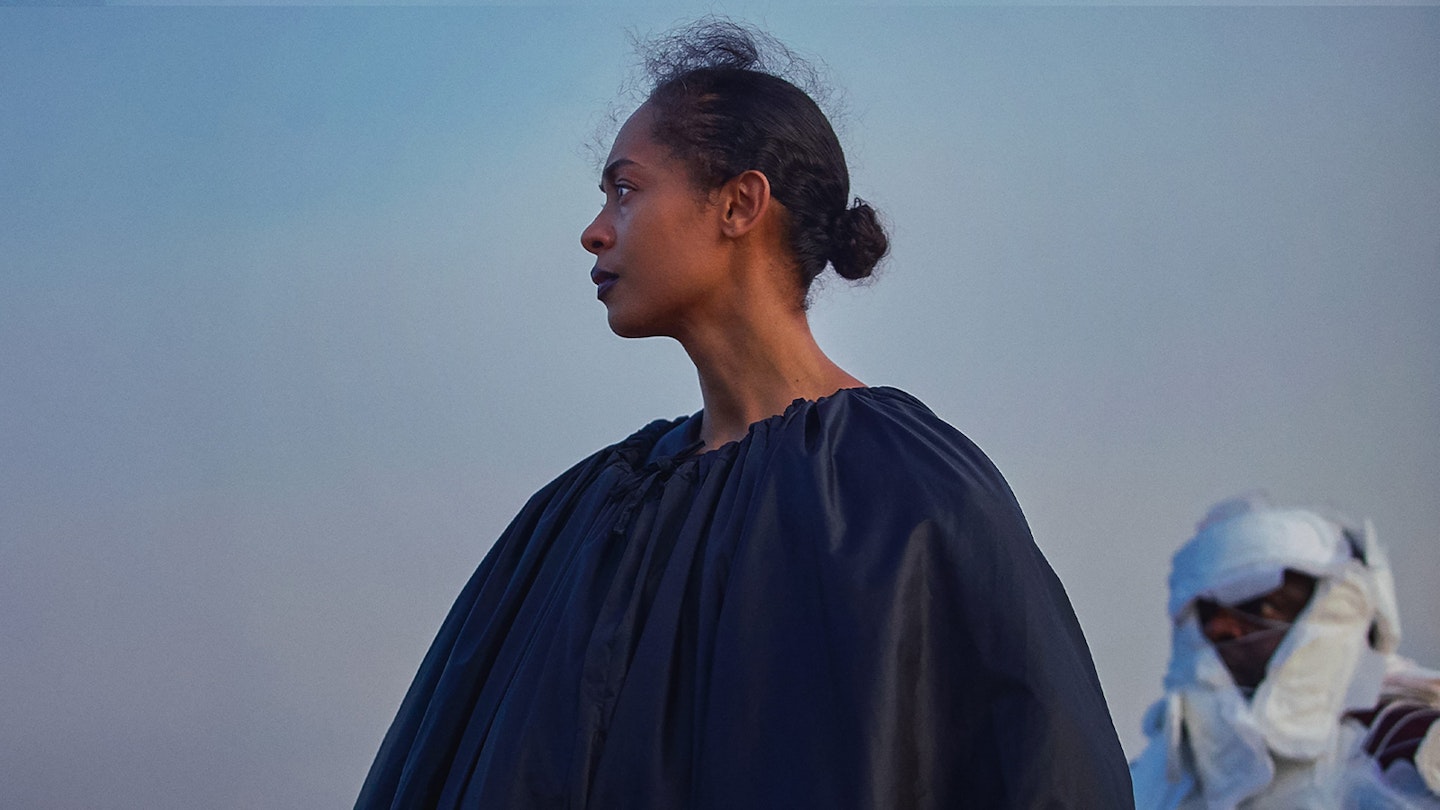In Zambia, or at least in Bemba culture, you don't speak ill of the dead — in part because of fear they might hear you. A little spooky perhaps, but mostly a loving belief that these people haven’t truly left us. (There are even renaming ceremonies, where a relative takes on the deceased’s name and therefore they live on.) Early on in On Becoming A Guinea Fowl, Shula (Susan Chardy) is haunted by the memory of her late Uncle Fred (Roy Chisha) — because of her uncle's abuses of her and other girls in her family, and the family’s refusal to acknowledge his wrongdoing.

And so her uncle’s memory only follows her around more, while her family chants in sorrow for a man whose cruelty and carelessness was an open secret. The second feature from Welsh-Zambian director Rungano Nyoni after her knockout satirical feature I Am Not a Witch, On Becoming A Guinea Fowl follows these hypocrisies to tragic, even darkly humorous ends. It follows Shula as she stays with her middle-class family in a residential area near Lusaka, helping to arrange the funeral rites and logistics for several day-long ceremonies paying tribute to an uncle she detested. But instead of speaking honestly about his abuse, Shula is expected to speak and behave with reverence. Her cousins and aunts act with outright hostility to anyone who doesn’t comply.
Throughout, Nyoni’s camera focuses squarely on the women, with many scenes feeling dreamlike, as though on a border with death.
It’s a tricky film from top to bottom. It’s not a blanket statement about Zambian tradition — there is no Zambian monoculture, rather variations throughout literal dozens of tribes — and the film is not an outright condemnation of those traditions. But Nyoni also doesn’t hold these processes above people’s wellbeing. While some practices are inherently patriarchal (like superstitions around witchcraft — something Nyoni has already covered in I Am Not a Witch), On Becoming a Guinea Fowl ponders rites which are poisoned and exploited. Shula’s family forsake their sisters and daughters in order to keep their position and their fortune.
Things which in theory are loving — like the idea that even in death, our relatives stay with us — become horrifying in the practice of Nyoni’s film, in part because the traditions do not account for the deceased being a bad person. That's not to say that these traditions are unassailable. The film refuses to venerate customs just because it's part of her blood, but On Becoming a Guinea Fowl also sees clearly how these rites can be exploited, even with good intentions.
The film becomes all the more damning through rather simple observations of its male characters. While the women quietly seek emotional refuge with each other, the men are mostly absentees, only resurfacing for handouts, unreliable even as confidants. There are perhaps two who speak in the entire film, neither with anything helpful or honest to say. Throughout, Nyoni’s camera focuses squarely on the women, with many scenes feeling dreamlike, as though on a border with death. The empty backroad on which she finds Uncle Fred’s body, laid out in the road in a way that feels almost intentionally organised, is utterly surreal. Later, a student dorm room is flooded up to the ankles — less an observation about living spaces and more an expression of the unspoken feelings overwhelming Shula, feelings which leave her evasive and frustrated in conversation.
Throughout the film_,_ Shula witnesses her family's constant disparagement of anyone not showing enough grief for Uncle Fred's death. Or in other cases, showing that grief incorrectly, by their standards. The Bemba funeral rituals lose any real meaning as they become a convenient excuse for Shula’s family to wield their power over others, often exploiting tradition to legitimise greed as they attempt to shut the poorer in-laws out of any inheritance. That ruthless veneration of wealth is contrasted with moments of genuine affection, however. A song between mothers and daughters in the confines of a pantry demonstrates that — despite being muffled by the capitalist ideals inherited from colonialist occupation — real love exists somewhere.
